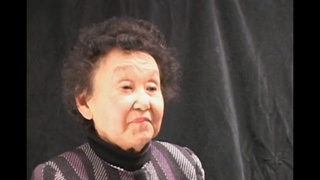Interviews
Life in camp as teenager
When we got into camp, I only went home to the barracks room when I had to go to sleep. And so, I remember…and I relied on the fact that the walls in the barracks between families only went up to the rafters, and it was open all the way through, so that you could hear the neighbors. So I relied upon that to do whatever I wanted to do. You know, my parents didn’t allow us to even play cards—any kind of cards—because it was associated with gambling. So I didn’t learn to play cards until I got into camp. And we didn’t even eat with our parents, you know, because it’s mess hall. So we ate with our peers. We played ball and that kind of stuff. And we’d stay up late and I learned how to play pinochle. And then I’d go home. And then one night my mother had enough of it. And she gave me a talking to that everybody could hear all up and down the barracks.
Date: January 7, 2004
Location: California, US
Interviewer: Art Hansen
Contributed by: Watase Media Arts Center, Japanese American National Museum.










